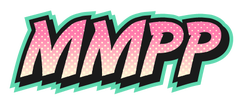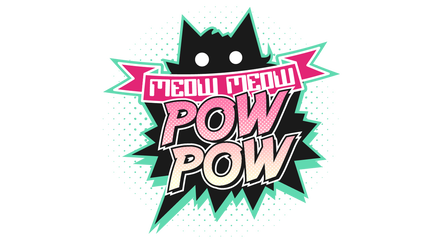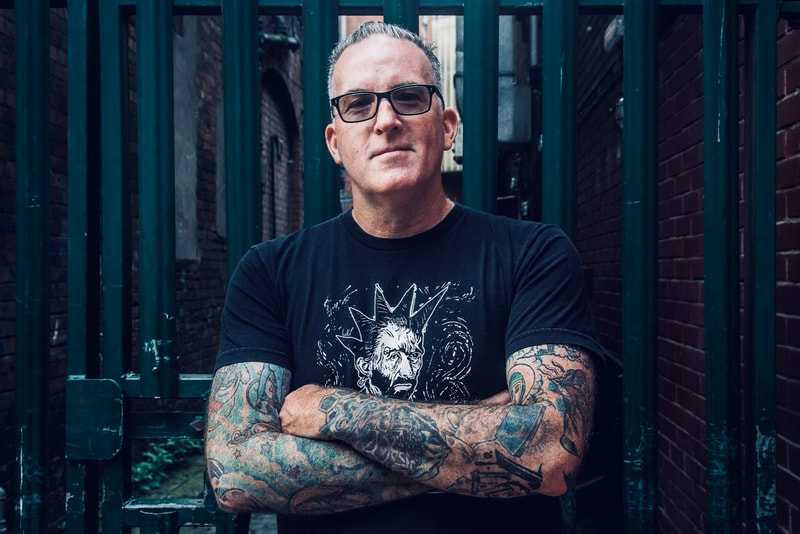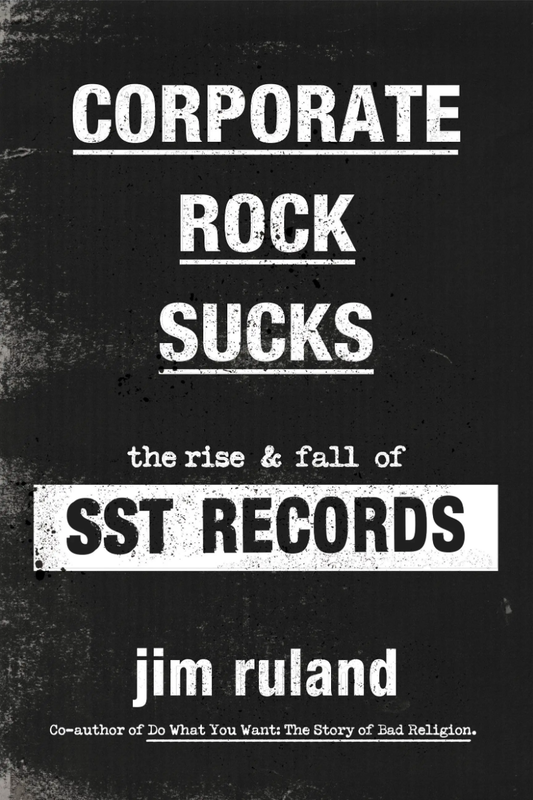|
4/26/2022 We Became SnakesGreg Ginn, SST Records, and the New Book "Corporate Rock SuckS" by Jim Ruland - H.What happens when the sons of a Tuskegee Airman, a bait and tackle shop owner, and an aspiring spy novelist meet the garage band who lives next door to rock legend Joe Walsh, in the shadow of the record industry's Payola scandal and the live music industry's pivot towards bar bands doing covers? It sounds like the setup of a Thomas Pynchon fever dream, but is in fact the catalyst for the indie music scene as we would come to know it from the 1980s through present day. "It shouldn't have worked. But it did." Until it didn't... I have loved Jim Ruland since the night I met him at Todd Taylor's house several years ago after a Razorcake/Gorsky Press podcast recording I did with Myriam Gurba and John Ross Bowie. So yes, I was going into reading his new book "Corporate Rock Sucks: The Rise and Fall of SST Records" (432 pages, Hatchette Books) with some bias. I also went into it with a preconceived notion as to what it would cover and in what detail, as so much of the Black Flag story has been told before in the published journals of vocalist Henry Rollins, and the punk rock and hardcore scenes of the early 1980s have already been so well documented - I don't know many punks who haven't watched the Youth Brigade/Social Distortion tour drama unfold in the documentary "Another State of Mind," or hasn't read all there is to know about the New York CBGB or Washington D.C. scenes in any one of a number of books covering those. But like a family trying to enjoy a day at Polliwog Park and instead witnessing Ron Reyes and Dez Cadena wrestle in front of a drunk and screaming Keith Morris, I stumbled onto more than I had expected. The author behind the co-written autobiographies of Morris (My Damage) and Do What You Want by Los Angeles punk institution Bad Religion (as well as an upcoming memoir by Evan Dando of The Lemonheads) has gone way beyond just filling in the blanks of Black Flag and SST Records founder Greg Ginn's role (without his participation in the book, even!). Ruland has given America its own England's Dreaming, chronicling the birth of indie music in the way Jon Savage chronicled the birth of UK punk. He spray paints the walls with a complete portrait of not only "ground zero for the early LA punk scene," but how a DIY touring circuit built by Chuck Dukowski and sympathizers across the country, college radio and small record shops, and late night hours MTV programming formed the culture of what came to be known as "alternative music." Not the subculture, but the blueprint for indie music as we are still experiencing it today. Ruland draws from decades of interviews published in zines only seen by a fraction of today's current music listeners, conducting original research and interviews, and linking together factoids, anecdotes, and material written from such fellow historians as Michael Azerrad, Jimmy Alvarado, and Stacy Russo (two of whom I may have spent a minute or hour or two alongside at a zine fest - here's a clue, it ain't Michael). This unearths some previously obscured truths. For instance, many of us watched Penelope Spheeris' "The Decline of Western Civilization" on VHS tapes years and years ago, but things I discovered from this book included that Morris had pitched singing for Black Flag on camera after he was already out of the band and after Reyes was already their new vocalist. Ginn and company declined, but got in the movie anyway. Also, that the documentary was more of an ad for Slash Records bands (I hadn't known Speeris was married to then new owner of the label) and, as Ruland tells it, a precursor for reality television rather than an infallible document of the era. Even the genesis of "slam dancing" is revealed to be partially a fabrication by Los Angeles Times writer Patrick Goldstein, which "caught on and gained cultural currency outside of the scene," Ruland writes, "much to the irritation of punk rockers in L.A." That the first drummer of Sonic Youth is the same guy who played one of the joyriding valets in "Ferris Bueller's Day Off" is a fun piece of trivia some of us may or may now know, but how many of us knew Ginn turned into a pot-smoking techno-loving Deadhead, or that "The Simpsons" creator Matt Groening contributed album art for Henry Kasier, or that Speaker of the House Nancy Pelosi's daughter was an SST intern, or that director of terrible film "Arlington Road" Mark Pellington was the MTV employee who helped get Bad Brains in rotation on "120 Minutes"? (Hey, I'm allowed to make fun of that Jeff Bridges/Tim Robbins mess I saw at midnight in 1999, because I am such a devotee of Pellington's other work like the most poignant music video of all time, The Connells' "'74, '75" --- I'm your sorry ever after, Mark!) Ruland also helps crystallize the surprising chronology of SST's rise and fall, including how the infamous Ginn-vibes-Dukowski-out-of-Black Flag story made famous by Rollins' Get In The Van, while true, still preceded many, many, many years of activity Dukowski took on with and for Ginn and SST --- what kind of cult leader was this Greg Ginn? And speaking of cults... with Ruland's eagle eye view, he is in hindsight able to find patterns that make for a compelling read and explanation of pop culture phenomenon, such as tracing the influence of the Charles Manson "Helter Skelter" panic through SST artist (and Ginn brother) Raymond Pettibon's work, the "Creepy Crawl" shit-disturbing that was more than a Rollins tattoo but also Ginn's philosophy about confronting audiences, and all the way through "Death Valley '69" by Sonic Youth, who would eventually join the SST roster, and the unsettling creative output and social engineering of Negativland. Ruland also covers the ups and downs of SST and Ginn's work with The Minutemen, The Meat Puppets, Screaming Trees, and Soundgarden, among many others - and you don't have to be, say, a Dinosaur Jr. fan to find it interesting how they came to be part of the tribe, and then where relationships came apart. And came apart at the seams they did, after Ginn made shortsighted decisions like turning down Nirvana (it's Sub Pop's back catalog that saved their asses during the grunge explosion), delaying release after release and holding back pay for the bands that helped build SST while turning it into a vanity label for his myriad of noise projects, channeling his penchant for indignant letter writing into prolific litigation against his own bands, starting and starring in an ill-fated "humorous" radio show years too early before the comedy podcast boom, a bizarre 21st century "Black Flag reunion" in name only at a feral cat benefit, and dumping money into brick-and-mortar "Superstores" and "Idea Rooms." Ruland and his subjects tell all, or at least what they feel like they can say without getting sued (though the unraveling of contracts as they got scrutinized demonstrate that Ginn has rarely had a legal leg to stand on). The biggest reveal of Corporate Rock Sucks is not gossip about who Mugger was sleeping with, or Rollins coming off as pretentious as he dived more into spoken word and performance art - it's that SST wasn't a punk label, not really. SST was truly an avant-garde pioneer. Yes, it had its roots in the previously established punkzine DIY ethic, Ginn seeing bands like The Last put out their own records like zinesters were putting out their own magazines. But as more money came in and Ginn's creative aspirations expanded, he enabled a lot of weird and wild projects to get their work out into the world. However, this Garden of Eden would eventually fall to the same greed and destructive hierarchies that snake their way into all counterculture communities and radical movements eventually. Ruland's book ends with a call to action, advocating for Ginn to release long dormant works back to their artists so that they may preserve the legacy of the music. It's idealistic, it may be a lost cause, but how appropriate is that, all punk considered? h. is the Meow Meow Pow Pow blog editor and frequent interviewer, a fiction writer and pop culture essayist, and took very good home buying advice from Todd Taylor of Razorcake. His own punk side story is collected at HubUnofficial.com.
Comments are closed.
|
AuthorOur fabulous blog team Archives
June 2024
CategoriesAll 12 Songs Art Art And Athletes Book Review Chorus Blog Date This Book Game Of Narratives Guest Blog Letter From The Editor Lifehacks Movies Of 2019 Music Pup Sounds Smackdown Strive For 55 Summer Playlists |




 RSS Feed
RSS Feed